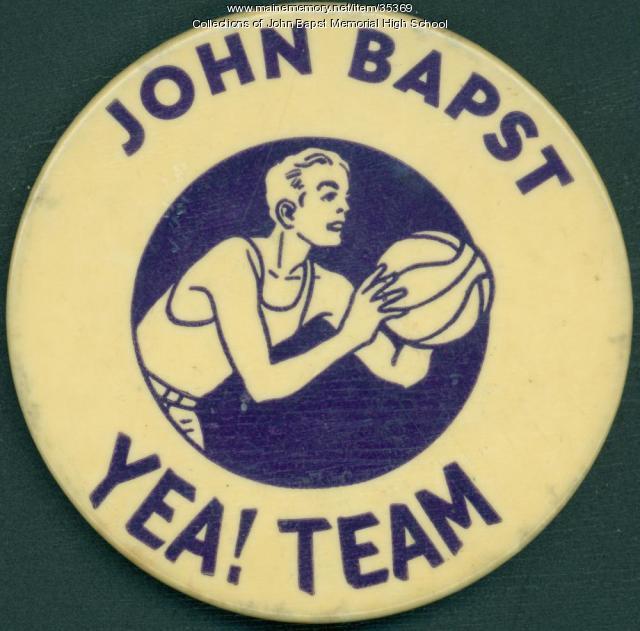Keywords: Bangor Council
- Historical Items (8)
- Tax Records (0)
- Architecture & Landscape (0)
- Online Exhibits (10)
- Site Pages (10)
- My Maine Stories (0)
- Lesson Plans (0)
Online Exhibits
Your results include these online exhibits. You also can view all of the site's exhibits, view a timeline of selected events in Maine History, and learn how to create your own exhibit. See featured exhibits or create your own exhibit
Exhibit
John Bapst High School was dedicated in September 1928 to meet the expanding needs of Roman Catholic education in the Bangor area. The co-educational school operated until 1980, when the diocese closed it due to decreasing enrollment. Since then, it has been a private school known as John Bapst Memorial High School.
Exhibit
Wired! How Electricity Came to Maine
As early as 1633, entrepreneurs along the Piscataqua River in southern Maine utilized the force of the river to power a sawmill, recognizing the potential of the area's natural power sources, but it was not until the 1890s that technology made widespread electricity a reality -- and even then, consumers had to be urged to use it.
Exhibit
Dressing Up, Standing Out, Fitting In
Adorning oneself to look one's "best" has varied over time, gender, economic class, and by event. Adornments suggest one's sense of identity and one's intent to stand out or fit in.
Exhibit
Immigration is one of the most debated topics in Maine. Controversy aside, immigration is also America's oldest tradition, and along with religious tolerance, what our nation was built upon. Since the first people--the Wabanaki--permitted Europeans to settle in the land now known as Maine, we have been a state of immigrants.
Exhibit
Port of Portland's Custom House and Collectors of Customs
The collector of Portland was the key to federal patronage in Maine, though other ports and towns had collectors. Through the 19th century, the revenue was the major source of Federal Government income. As in Colonial times, the person appointed to head the custom House in Casco Bay was almost always a leading community figure, or a well-connected political personage.
Exhibit
World War I and the Maine Experience
With a long history of patriotism and service, Maine experienced the war in a truly distinct way. Its individual experiences tell the story of not only what it means to be an American, but what it means to be from Maine during the war to end all wars.
Exhibit
Redact: Obscuring the Maine Constitution
In 2015, Maliseet Representative Henry Bear drew the Maine legislature’s attention to a historic redaction of the Maine Constitution. Through legislation drafted in February 1875, approved by voters in September 1875, and enacted on January 1, 1876, the Sections 1, 2, and 5 of Article X (ten) of the Maine Constitution ceased to be printed. Since 1876, these sections are redacted from the document. Although they are obscured, they retain their validity.
Exhibit
Holding up the Sky: Wabanaki people, culture, history, and art
Learn about Native diplomacy and obligation by exploring 13,000 years of Wabanaki residence in Maine through 17th century treaties, historic items, and contemporary artworks—from ash baskets to high fashion. Wabanaki voices contextualize present-day relevance and repercussions of 400 years of shared histories between Wabanakis and settlers to their region.
Exhibit
George F. Shepley: Lawyer, Soldier, Administrator
George F. Shepley of Portland had achieved renown as a lawyer and as U.S. Attorney for Maine when, at age 42 he formed the 12th Maine Infantry and went off to war. Shepley became military governor of Louisiana early in 1862 and remained in the military for the duration of the war.
Exhibit
Begin Again: reckoning with intolerance in Maine
BEGIN AGAIN explores Maine's historic role, going back 528 years, in crisis that brought about the pandemic, social and economic inequities, and the Black Lives Matter movement in 2020.










